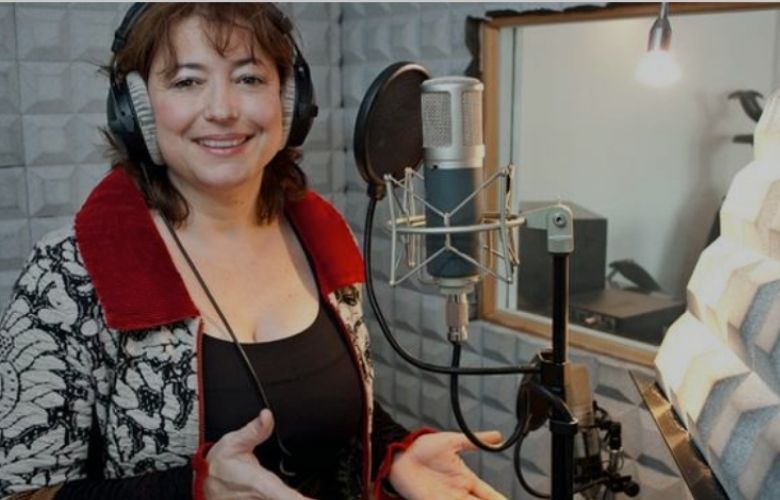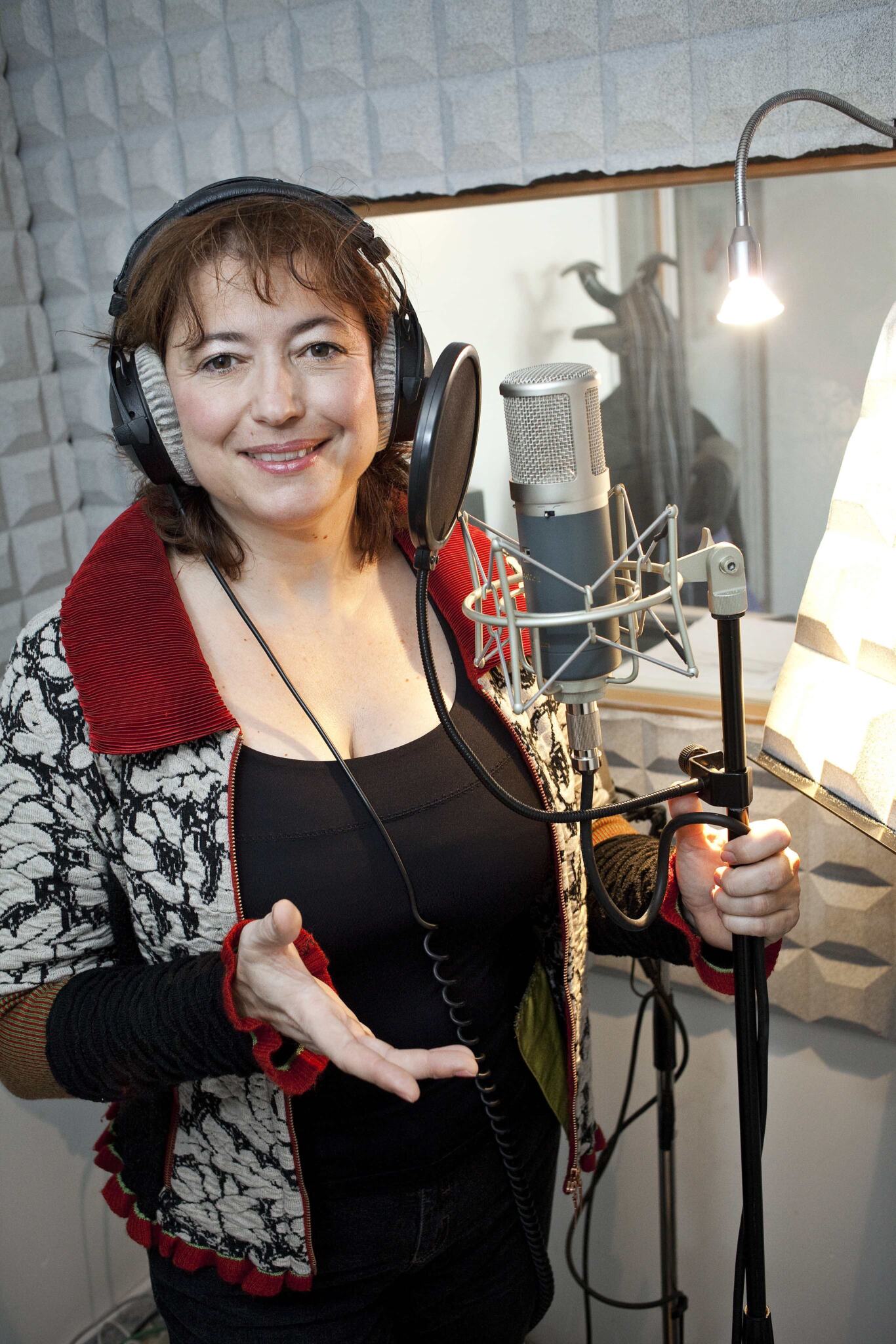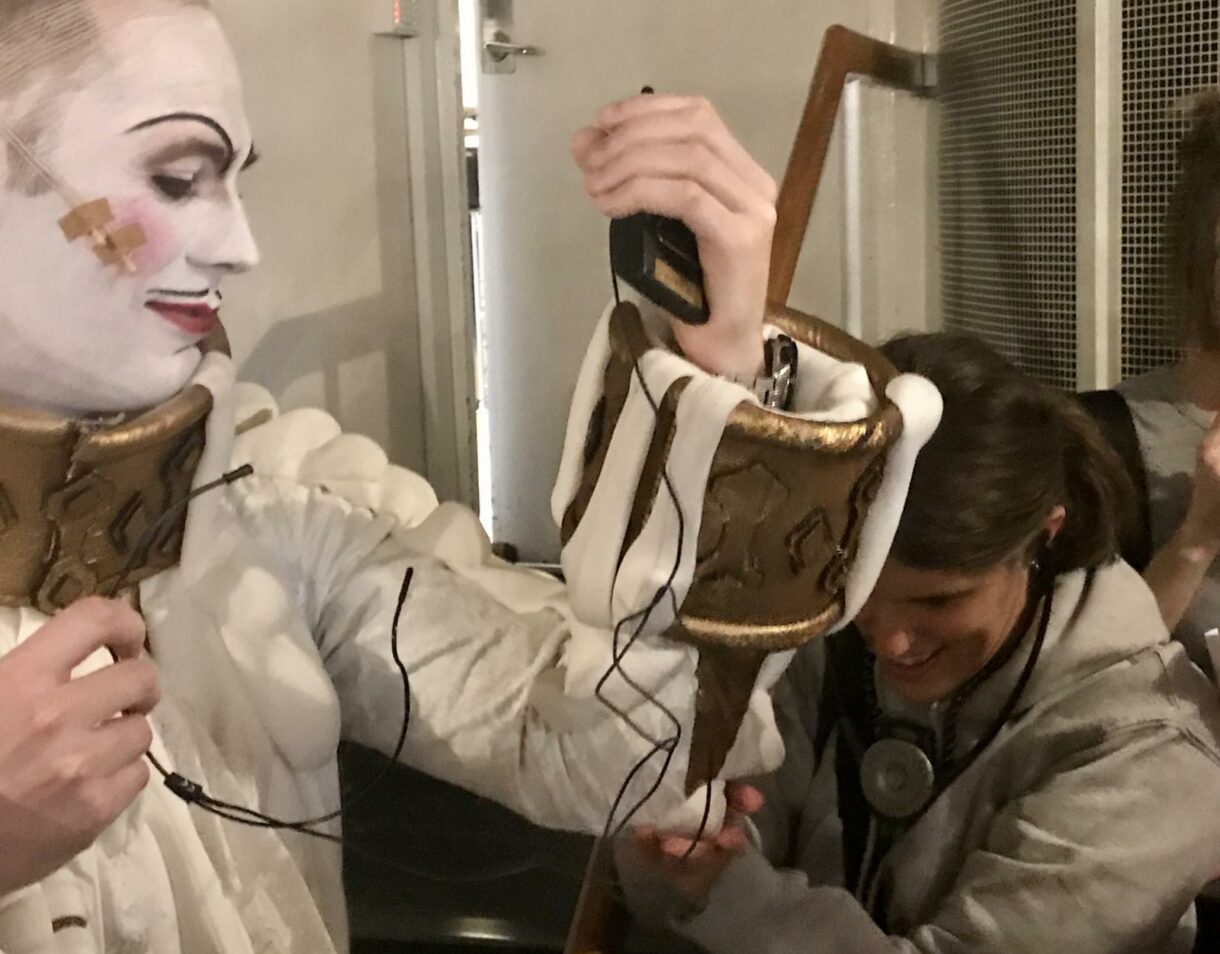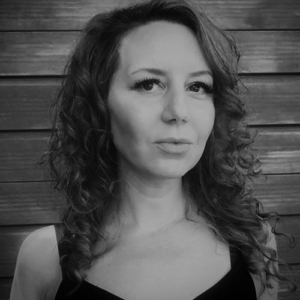
Laura Kamis Wrang is a Danish Audio Description and Voiceover Artist with over 30 years experience in the industry. She has worked across theatre, film and TV, as well as being the voice of many well-known companies and products in Denmark. Laura has been an Audio Describer at DR Danish National Television since 2017. She joins us to talk about her fascinating career, and why creating accessibility is so important in the work that she does.
Denmark is currently under lockdown and I have been doing quite a few voiceovers and audio descriptions. With my husband and daughter at home and a new roof to be put up… my house has been a beehive of people coming in and out!
My background is as a trained actor at the Danish National Theatre School. Being bilingual (my mother was Canadian) I have done voiceovers for more than 30 years within all media… from movies, TV adverts, company website presentations to being the voice in the Copenhagen Metro for 17 years (until 2019) and the Copenhagen S-train.
Being an actress, I was asked to do an audio description of a theatre performance with my colleague Dorthe Mikkelsen Hansen back in 2016. Until now it is still the only audio described performance in Denmark. The production was a privately produced musical version of Ronja the Robbers Child based on the story by Astrid Lindgreen. This job became my ticket into the world of audio description.
Since 2017 I have been writing manuscripts for DR Denmark’s National Television Company. They are the only Danish television company with a history for offering audio description for their own productions on a regular basis. The first drama series audio described at DR was The Killing, which went successfully around the world. Since then 21 more drama series have been audio described, as well as several 7 Christmas series for children.
Netflix has offered a few audio descriptions in Danish, the latest being The Rain and Rita. The first audio description for a cinema movie was in 2014, and I’m happy to say that since then, 28 Danish produced movies have been Audio described – the most well-known is probably Another Round, with the famous actor Mads Mikkelsen.
The process for a recorded event is somewhat different from a live event. The script is quite a lengthy process as we have to fit in our descriptions in between the very small pauses of speech and sounds, so that the words enhance the scene and not disrupt the flow.
Live is, as you have mentioned, more like a radio or television commentator role, but with focus on describing anything of importance that a blind person would miss out on.
This brings many more sense-based and picture creating words into play, which differ from traditional focus words of a traditional narrator.
Dorthe Michelsen Hansen and I did the first audio description at a museum back in 2019. The Medicinal Museum created a tactile and audio described corner exhibit in addition to their final digitalisation of the items from the historical museum for the blind. No other museum is offering an added audio described guide to any of their exhibits as far as I have heard of.
So you see, in Denmark we are a not quite as far ahead in this area of accessibility as maybe they are in the USA. But dedicated steps are being taken one by one towards a better possibility to be part of the cultural offers in the future.
My mother became blind back in 2010 during her last years. As the daughter of a culturally obsessed mother – former actress, teacher and creative arts person herself – I found myself in a devastating situation. Nowhere did she feel she was invited in; to the theatre, movies or arts museums. This opened my eyes – literally – to the lack of opportunities offered for this group of people, who should be able to feel welcome in the cultural world.
Art and culture should be for all.
Last year I brought a group of blind and VI guests across the bridge to Malmø Sweden, to experience the musical Beauty and the Beast with live audio description in Danish by me, at Malmø Opera House. They have offered live audio description for more than 20 years in Sweden for all kinds of arts offerings.
I had hoped that we could bring this to Denmark… but then Covid 19 came and the whole arts world closed down (several times) and we are right now in yet a lockdown from December until February. As we are only about 5 audio describers trained within the field, I suspect it will take a few years to build up any resources within this area, so that we can expand into theatres and museums.

With the EU laws WCAG 2.1 Denmark is required to make all films shown on official communal homepages accessible with captions and audio description if needed for full understanding of the subject. Most institutions have got round to creating the accessible print but not the video or photo level yet.
I am invited to do the first audio description of a seminar about the situation within getting studies at the University and within workplaces accessible for young people with VI and blindness. It has now been postponed until Denmark opens up again.
I have done several talks about AD and am trying my best to invite young people and families to look for films and series on different streaming channels with AD.
I hope that this will help to build awareness about how this aid is offered around the world. If you don´t know about it – you won’t look out for it.
Going to London back in 2019 to participate in the Annual meeting of ADA the British Audio Describers Association was very important for me. Here I spoke to AD pioneers and veterans, who shared their thoughts and expertise with me. This meeting emboldened me to speak with politicians and hereby take first steps into creating awareness at a higher level for this area.
Should anyone be interested in AD please let them contact me. I will do my best to send them information about books and educational possibilities in the US and in Europe.
In 2020 I finalised the AD for a new DR drama-series The Wolf Is Coming, about a family with a challenging issue – violence within the family – and how the official social system goes about dealing with the issue.
The series has already received quite a few prizes and I expect there will be more to come. The series brought up several discussions in the media and I am very happy to have been able to aid the blind and VI community with the AD, so that the ones who chose to watch the series were able to be a more equal participant in the discussions that followed in the tail wind of the series.
Accessibility At The Smith Center Series: Part One
James “Fitz” FitzSimmons Interview: The Boys In The Band On Netflix


Michelle is a musician and composer from the UK. She has performed across the UK and Europe and is passionate about arts education and opportunities for women and girls.
Read Full Profile© 2021 TheatreArtLife. All rights reserved.

Thank you so much for reading, but you have now reached your free article limit for this month.
Our contributors are currently writing more articles for you to enjoy.
To keep reading, all you have to do is become a subscriber and then you can read unlimited articles anytime.
Your investment will help us continue to ignite connections across the globe in live entertainment and build this community for industry professionals.